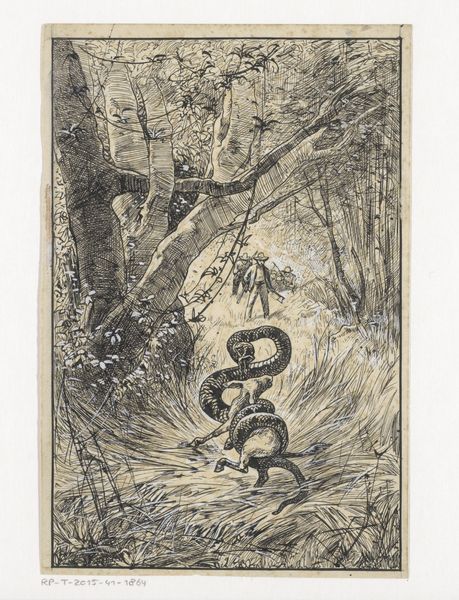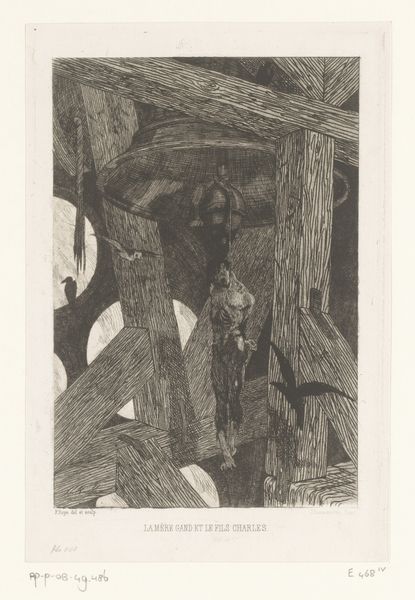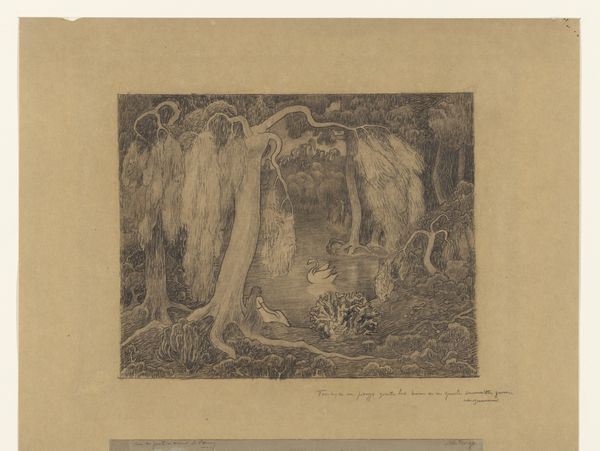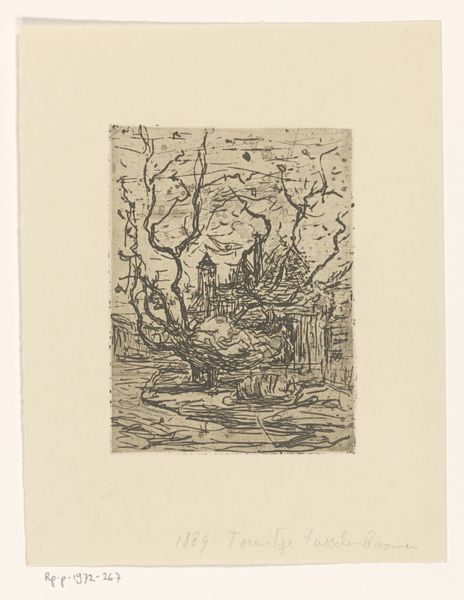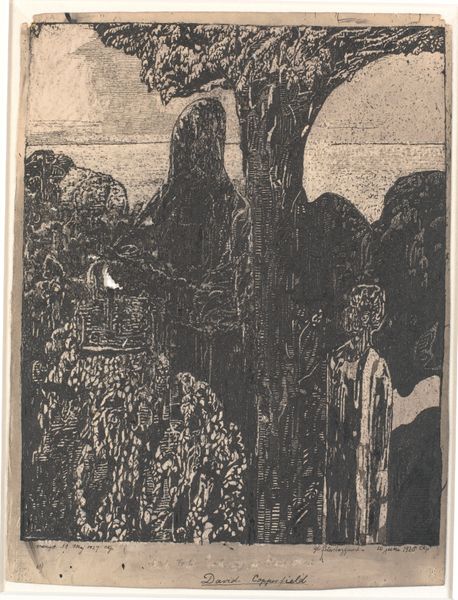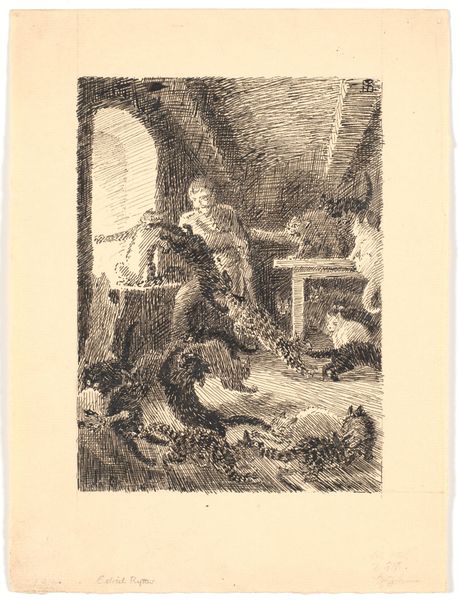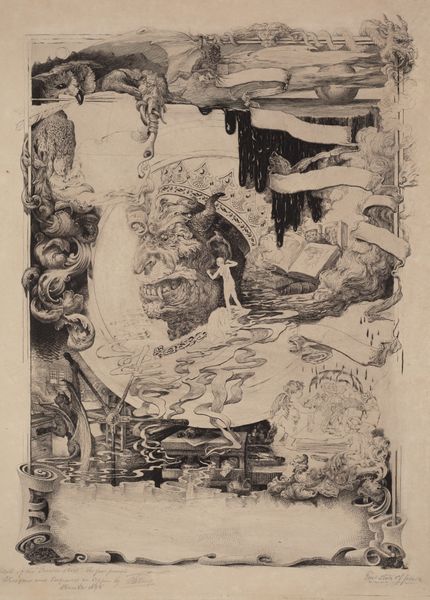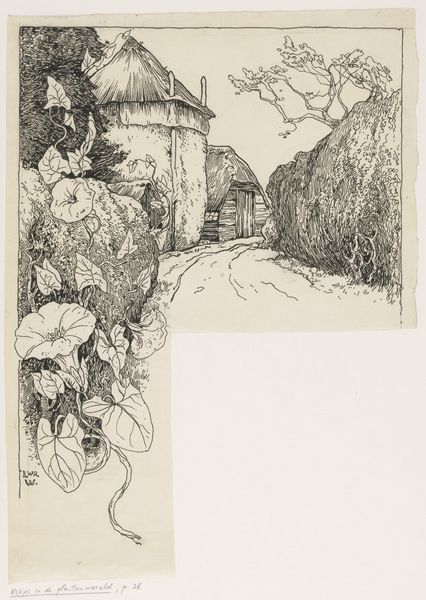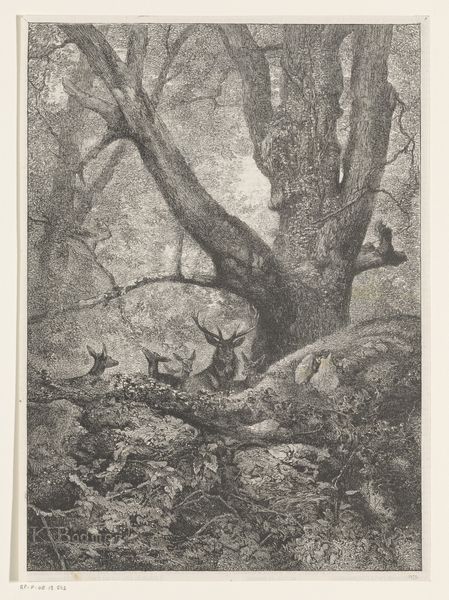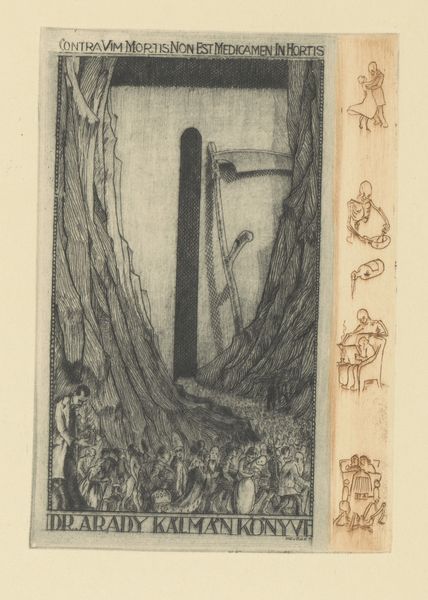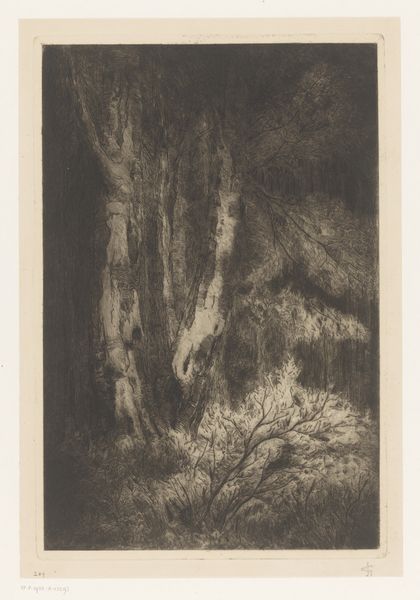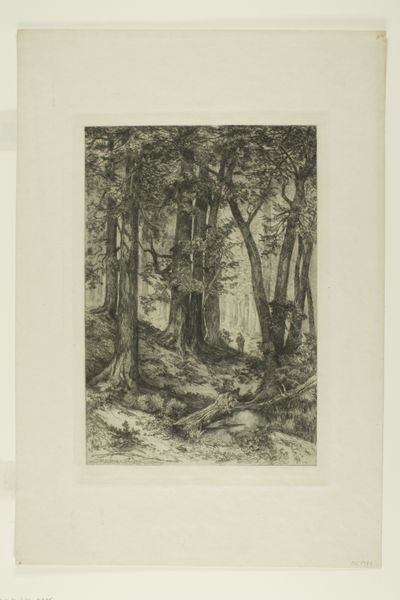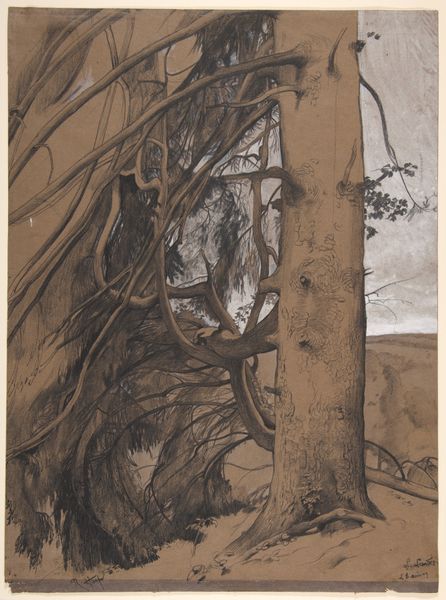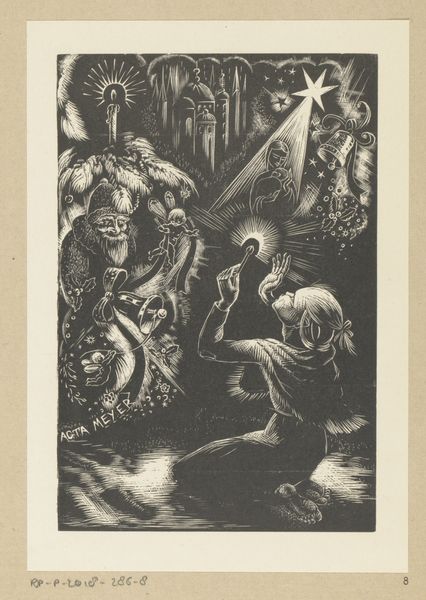
drawing, etching, paper, ink
#
pencil drawn
#
drawing
#
narrative-art
#
etching
#
pencil sketch
#
landscape
#
charcoal drawing
#
paper
#
ink
#
pencil drawing
Dimensions: height 200 mm, width 133 mm
Copyright: Rijks Museum: Open Domain
Curator: So, here we have Willem Wenckebach's "Miniature House against a Tree," made sometime between 1870 and 1937. What are your initial thoughts? Editor: Well, it's a very detailed drawing. I see it's ink and pencil on paper, and there's a sort of fantastical quality to it, with a house nestled within a massive tree. What's your take on it? Curator: What jumps out at me is the tension between nature and human intervention. Look at how Wenckebach meticulously renders the texture of the bark, and the dense network of branches with etching and pencil. It points to a clear interest in material specificity. But then there's the house – a clear mark of labor. Do you think it's romanticizing a relationship between these entities? Editor: Maybe, but it also feels like a commentary. The miniature house is dependent on the tree. I'm wondering about the economic conditions of the time. Was there a trend toward natural resources? What materials were people building houses out of at the time this work was made? Curator: Excellent questions. Remember, Wenckebach's lifetime saw massive industrial expansion and urbanization. Could this "miniature house" also be read as a critique of that? Is he contrasting mass-produced housing with simpler, organic forms? Perhaps looking at who would own/inhabit this tree house tells a larger story. Editor: So, by examining the materials and the depicted structures, we can connect this artwork to broader social and economic shifts. I appreciate that shift in thinking from formal analysis. Curator: Exactly! Focusing on materiality allows us to see the work as more than just a pretty picture. It's a document of its time. Editor: That makes me look at it in a completely new light. Thank you for showing that. Curator: And thank you for pointing the discussion to a much wider focus.
Comments
No comments
Be the first to comment and join the conversation on the ultimate creative platform.
